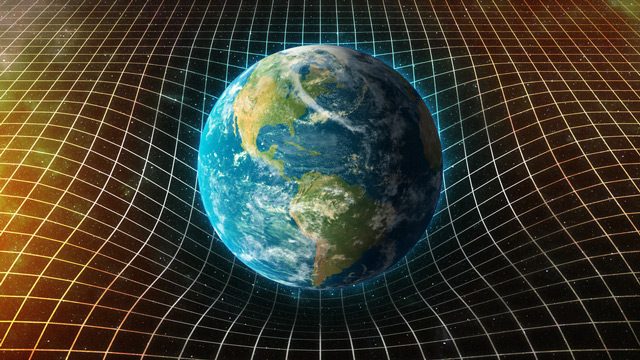SUMMARY
This is AI generated summarization, which may have errors. For context, always refer to the full article.

“Gravity” is literally, the most earthly experience we have – the one thing we all experience, regardless of size, shape, color, bank account or virtual identity. But the vast majority of us don’t really care to know what the heck gravity is. Most of us do not really itch to know why and how the “force” that all land us on the ground also indiscriminately lays its power over ALL matter – animals, stones, leaves, air, galaxies – in the vast and immense “universari-sari” store. But two human beings, separated by centuries, made of the same “starstuff” as all humans are, mainly cultivated the awe-inspiring gravitas in how we understand gravity: that it is the siren song that is played throughout the universe.
Three hundred twenty-nine years ago, Isaac Newton became consumed by this thing he called “gravitas” (Latin for “weight”) and worked to capture it in thought. He described gravity as a force that acted not just on objects here on our own planet but everywhere else in the universe. Suddenly, the mundane and the heavenly became strung and encapsulated in a single equation which is used, up to now, by anyone who wants to launch something to somewhere – stone, spaceship or human. Newton’s Law of Universal Gravitation is clumsily called a “law” but it is not a law that you or anything with mass could opt out of. It is a fundamental song – like a permanent anthem of the universe that is always playing if you’re in the home concert hall and the home concert hall is the entire universe.
But if gravity were the anthem of the universe, we have to know the lyrics and music if we were to sing it and understand how it has given rise to the universe, inhabiting it and enlivening it with solar systems, spinning galaxies, collapsing stars among its range of celestial extravaganzas. This is what Albert Einstein did – he deciphered the lyrics and the music of the song that the universe dances by.
In 1916, Einstein published a paper on General Relativity essentially coding the sheet music of gravity. This time, gravity was not the force acting on objects – it was actually the result of matter making a dent on spacetime itself- curving it. (Space and time are not really separate dimensions but form a matrix like the one seen in the film Interstellar.)
Einstein said that anything with a mass bends spacetime (yes, including you) but this dent becomes physically dramatic only with big things like stars and planets. This is not an established truth because Einstein said so but experiment after experiment has proven it and confirmed it. This explains why our massive sun, a star, makes a big dent on the space it “sits” on, and so do the planets and other “smaller” things but since the sun has a much bigger mass, the dent it makes is deeper, making the other objects around it move towards it, explaining the orbits. So gravity literaly plays the range of highs and lows of spacetime – the sopranos and bassos of the siren song of the universe.
And lately, a noisy bang in science news announced that even gravity’s vibrato has finally been heard. These are referred to by scientists as “gravitational waves”. And while Newton and Einstein were the 2 distinct sun solos around which “gravity” has been understood, a thousand scientists had to form a big chorale to hear this vibrato.
This thousand-voice scientific chorale created two instruments located separately in Washington and Louisiana that 4 months ago, detected a “whisper” of this song, propagated by the clashing of 2 very massive black holes 1.3 billion years ago. This was a very big deal because first, it goes back to the star that was Einstein, a hundred years after he published his paper on gravity where he predicted the existence of gravitational waves.
But Einstein imagined how gravity works, better than he could the potential of his fellow humans. At that time, he was not optimistic that gravitational waves could ever be detected because from his equations, it would be very weak and would require a kind of technology, beyond his wildest imaginings.
The consequence of Einstein’s equation also makes possible the existence of black holes which he himself was not fond of since with black holes, the known laws of physics fall apart. But ironically, it was the clashing of two black holes that created a denting extravaganza of universal proportions that we can still hear its whisper 1.3 billion years later. And just like a siren song, it lured the scientific community – leaving it star-struck, starry-eyed and whatever other cosmic descriptive you can think of. Gravity has always had us; now we can also say that we got gravity.
And what does it mean to our emotional lives? None. Einstein would be the last person you would want to consult on romantic love. Understanding gravity would not make you have a deeper dent in spacetime. With our puny mass, we hardly make a mark on the universe but goodness, how we try with our violent wars, bombastic speeches and reality shows!
But we can inhabit our own spacetime so that it matters to us and the people we care about. Gravity does not have power over that. But maybe, every time we turn another year on our birthdays and celebrate with love, we should also remember that our literal orbits, riding on this solar carousel, is made possible by a song called gravity. – Rappler.com
“Earth’s gravity bends space around it” image from Shutterstock
Add a comment
How does this make you feel?
There are no comments yet. Add your comment to start the conversation.